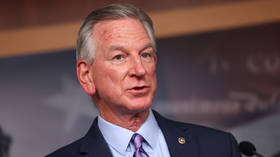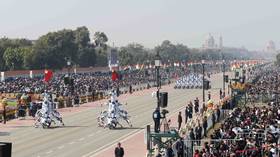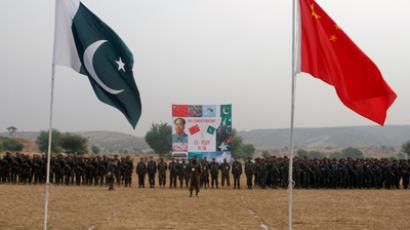Pakistan-Iran-Afghan talks ‘a message of defiance’ to the US
With trilateral talks between the leaders of Iran, Afghanistan and Pakistan underway in Islamabad, one question arising is what each side has to gain. Political analyst Ahmed Quraishi says Pakistan is sending a message of defiance to the US.
Iranian President Mahmoud Ahmadinejad and Afghan President Hamid Karzai arrived in Pakistan for a trilateral summit aimed at addressing how Islamabad should facilitate negotiations between Afghanistan and the Taliban. Many see the move as a defiance of US will by two traditional American allies – Pakistan and Afghanistan – who are now seeking to include Iran, a stated adversary of the US, into the negotiation process. Ahmed Quraishi, the President of the Paknationalists Forum, believes each side is pursuing its own goals. “Washington considers Iran as some sort of an enemy,” he told RT, “and Pakistan is sending a message that Pakistani policy – for quite some time, actually – would be independent and that Pakistan would pursue its interest even if those interests do not fall within the larger, strategic plan of the United States in the region.”Quraishi noted that Iran timed the visit specifically because of rising fears brought on by war rhetoric coming from the US and its allies. He noted that Iran’s principal aim was to ensure that it would not become encircled by Washington's allies. “They’re worried about the rhetoric and drums of war – the psychological warfare, and I think they’re very keen to ensure that at least two neighbors – Pakistan and Turkey – will not join the pro-US encirclement of Iran,” Quraishi noted. “Pakistan continues to be the weak link because there are people within the Pakistani power structure who would probably support US use of Pakistani territory against Iran.”As for Afghanistan, Quraishi said the country’s leadership isn’t keen on pursuing the American method of fighting the Taliban, and is now willing to include the Taliban in the national power structure. That, according to Quraishi, is Karzai’s main goal in Pakistan “He’s meeting with key Pakistani political and religious leaders, Islamic leaders who have maintained traditionally very close ties to the Afghan Taliban and other Afghan resistance groups,” he remarked. This move, Quraishi says, is a major shift for Afghanistan, as it had previously shunned those groups. The analyst said he does not believe President Karzai is really thinking of fighting the Afghan Taliban, but that he is looking toward integrating them and opening his own direct talks. "And I think everybody is,” he added.














